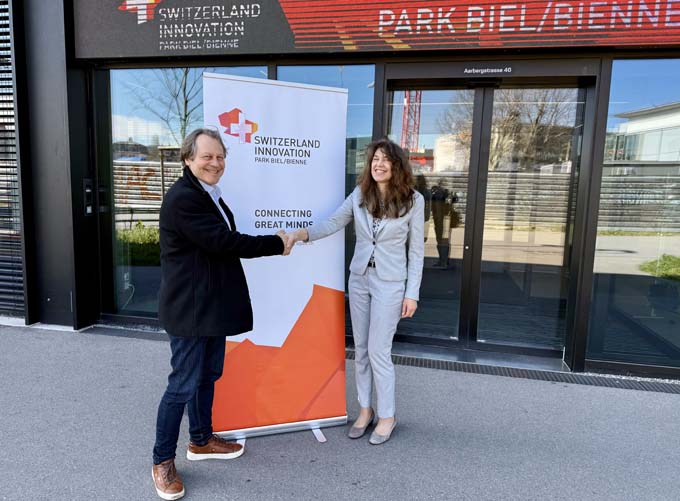IDC Study: The Manufacturing Industry in Transition
The Current IDC Study identifies challenges and strategies for success for leaders in HR, finance and IT. The study is supported by Workday, a leading provider of enterprise cloud applications for finance and HR. Through this support, the study examines how manufacturing companies from the EMEA region are dealing with the current economic uncertainties.

The manufacturing industry, especially SMEs, is considered the backbone of the economy in the DACH region. Nevertheless, the manufacturing sector, at the intersection of tradition and technology, has been facing very many challenges at the same time for several years. This IDC study therefore addresses the question of how individual business units such as HR, Finance and IT can navigate through these turbulent times and what role technology plays in this.
Scarcity of raw materials, cost pressure and cybercrime challenge companies
The study showed that the manufacturing industry is currently facing many challenges. For 43 percent of respondents, the global shortage of components and raw materials tops the list, with persistent bottlenecks in the supply chain, and the chemical and metal industries suffering from sharply increased energy prices.
Other important factors that manufacturing companies need to address:
- Competitive pressure - 35 percent
- Rising internal costs - 33 percent
- Increase in cyber attacks - 32 percent
- Difficulties in entering new markets - 30 percent
- Increased fluctuation in demand - 29 percent

To succeed, manufacturing companies need to restructure their processes to become more resilient and adaptable. A balans between cost and safety plays a critical role in this. The study underlines that having the right skills and talent available to address these challenges is the foundation for successful restructuring and sustainable growth. Alexandra Hartung, Head of Medium Enterprise Germany says: "The study identifies key skills gaps that could slow down the transformation process. In particular, the lack of digital and IT skills as well as operational skills is seen as an obstacle. This leads to delays in digital transformation, limited development of new business models and higher reject rates in production. Successful transformation is achieved by attracting skills and talent, improving the employee experience and increasing operational resilience."
The development of employees
52 percent of respondents emphasize the need for skills development. This includes the continuous further qualification and retraining of employees in order to meet current and future requirements. For example, the switch to electric vehicles or the energy transition in the metal industry requires an adaptation of production processes. In addition, 46 percent of respondents said that investments must be made in employee recruitment. This includes recruiting digitally and IT-savvy employees as well as service and maintenance engineers in the field. In addition, the recruitment of software developers and cybersecurity experts is considered essential to develop smart and connected products.
Personnel development is the focus for 44 percent of respondents. Also gaining in importance is the creation of inclusive work environments in which both less experienced employees and employees with disabilities (e.g., wheelchair users on assembly lines) can do their jobs effectively. Twenty-eight percent of respondents emphasize the importance of employee retention. This includes improving employee experience and satisfaction, as well as specifically assigning skill profiles to appropriate tasks. Not only employee retention, but also collaboration between chief human resource officers (CHROs), chief information officers (CIOs) and chief operating officers (COOs), is of great importance, according to the study. Only through a joint effort can the foundations for sustainable business growth and effective business transformation be laid.
This is also confirmed by real-life examples in the manufacturing industry - The Freudenberg Group. Sarah O'Hare, Global Head of HR at Freudenberg Group, says: "A modernization of the complex and fragmented HR system was urgently needed. End-to-end streamlined HR processes and a single valid truth for master data in one central location was a truly transformative solution for us. We were particularly excited about the excellent mobile functionality we implemented. Overall, it's been a great success across the board, especially in terms of increased efficiency: what used to take weeks or months and require a lot of effort from our 800 HR professionals can literally be done in 30 seconds - sometimes as little as five - with Workday."
Hartung summarizes the study results: "Investments in employee experience are essential to align the manufacturing sector for sustainable growth. Only through the targeted integration of specialist skills and the implementation of progressive HR strategies can manufacturing companies in the DACH region successfully meet today's challenges."
Based on this IDC study, Hartung's suggestions would be:
- Offering careers instead of jobs: To attract employees, the corporate culture must be adapted accordingly or continuously developed.
- Find influencing factors for a good employee experience and adapt them individually
- Capture job and/or task requirements and identify competency gaps.
- Identify talents with the required competencies and enable them to perform tasks that match their strengths
Source: www.workday.com









